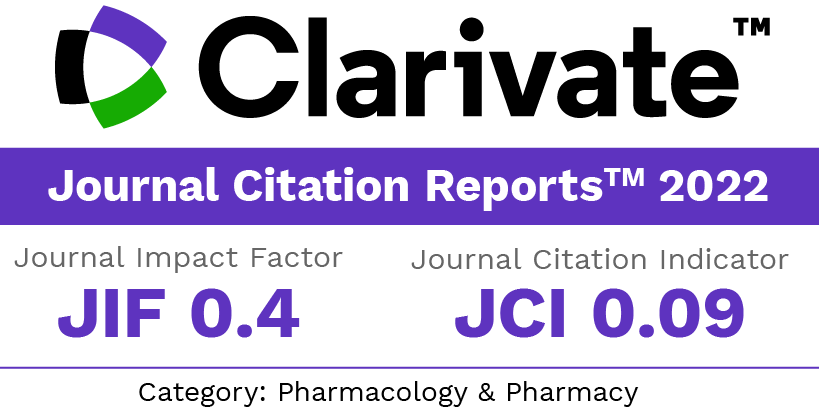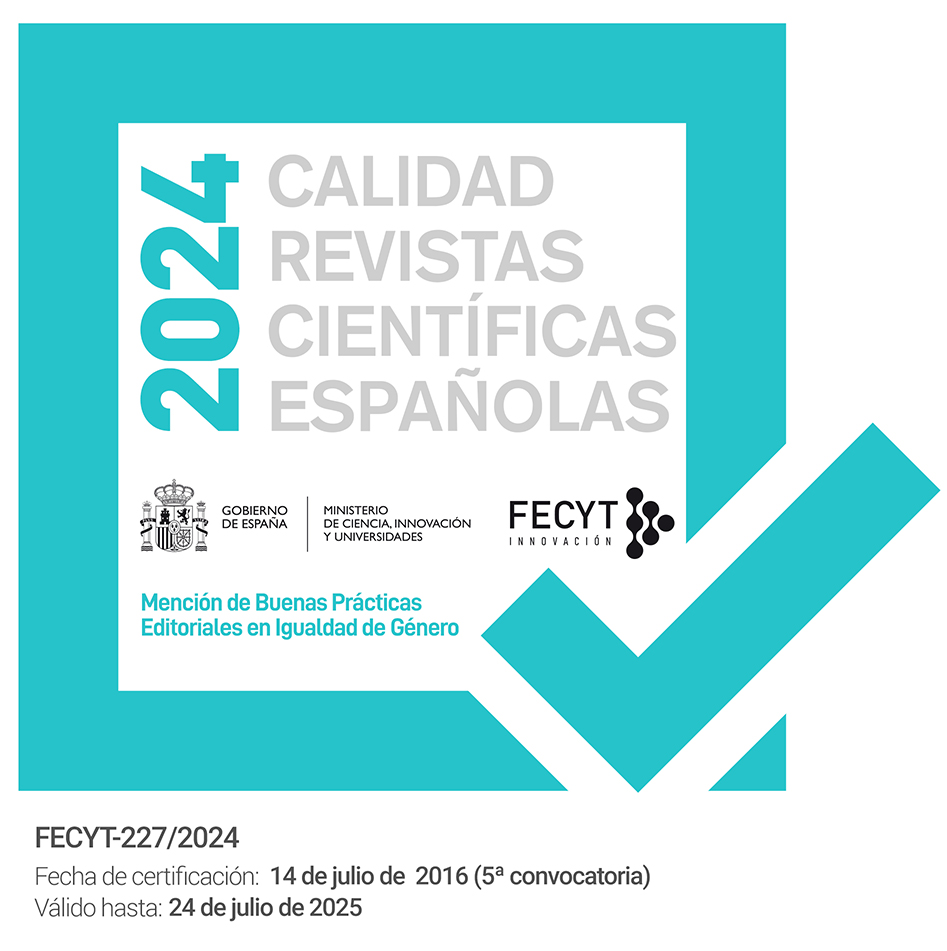The teaching of Dáder methodology in pharmacotherapeutic follow up to pre-graduated students: student survey
Keywords:
Students, Pharmaceutical Care, Survey, Community Pharmacy, Dáder Methodology, Tutored Practical ExperienceAbstract
In the field of pharmaceutical studies, the inclusion of tutored practical experience is considered as a priority in theeducation of pre-graduate students. In the year 2001, the subject Practical Work Experience during the pharmacy degreecourse at the Faculty of Chemical Sciences, National University of Córdoba, was carried out, with the collaboration ofpharmacist tutors, participants in the Dáder program, in the Province of Córdoba, Argentina. Under their supervision,the students carrying out the final year of their studies, participated in practice sessions in community pharmacies. Inthe year 2001, a survey was designed in order to obtain student’s opinions of the project. On this basis, the activitiesand training tools developed, with the tutor pharmacist, were evaluated.A response rate of 89.6%, from the 48 surveys distributed, was achieved. With regard to the training received, themajority of students responded to questions 1,2, and 3, with excellent and very good. 97.7% considered the methodologyemployed as practical, and 95.3% believed that it was possible to incorporate these pharmaceutical care activities intotheir future working practices.Downloads
References
Organización Panamericana de la Salud. Serie de Medicamentos Esenciales y Tecnología (HSE): 13. Plan Básico de
Educación Farmacéutica (Propuesta de Grupo de Trabajo. Lima, Perú, del 6 al 9 de julio de 1998). Septiembre 1999.
CAPE Advisory Panel on Educational Outcomes. Educational Outcomes. American Association of Colleges of Pharmacy.
Nov.
European Pharmaceutical Students’ Association and the International Pharmaceutical Students’ Federation. Pharmacy
Education: A Vision of the Future. A Comprehensive Collaborative Study by Pharmacy Students Worldwide of
Essential Developments in Pharmacy Education. July, 1999.
Traverso ML, Salamano M, Gimenez A, Botta C. Educación en Farmacia Asistencial: experiencia, alcances y perspectivas.
Aten Farm 2000; 2 (2): 191-4.
Hepler CD. Práctica y formación farmacéutica para el 2010. Farm Clin 1997 Mar; 14(2): 63-82.
Bonal J. Atención Farmacéutica: Necesidad de adecuar el currículo de las Facultades de Farmacia. El Farmacéutico
;(171): 39-41.
OPS/OMS. El papel del farmacéutico en el Sistema de Atención de Salud. Informe de la reunión de la OMS. Tokio,
Japón 1993. OPS/HSS/HSE/95.01; 1995.
Primera parte. Segunda reunión de la OMS. sobre la función de farmacéutico: Servicios Farmacéuticos de Calidad: ventajas
para los gobiernos y el público.
Segunda parte. Federación Internacional Farmacéutica (FIP). LA DECLARACIÓN DE TOKIO. Buenas Prácticas de Farmacia:
Normas de Calidad de Servicios Farmacéuticos.
Solá N, Correa Salde V, Uema S, Vega E. Propuesta Docente para Integrar Conocimientos Teóricos sobre Atención
Farmacéutica en la Práctica Profesional. Pharm Care España 2000; 2 (3):170-176.
Mangues MA. Aprendizaje Basado en Problemas: Aplicación en la Enseñanza de la Farmacia Clínica y la Atención
Farmacéutica. Barcelona: Ediciones Mayo; 2000.
Martínez Romero F, Fernández Llimós F, Gastelurrutia MA, Parras M, Faus MJ. Programa Dáder de Seguimiento del
Tratamiento Farmacológico. Resultados de la Fase Piloto. Ars Pharmaceutica 2001; 42 (1): 53-65.
Armando P, Semería N, Tenllado MI, Solá N. Programa Dáder de implantación del seguimiento del tratamiento
farmacológico. Manual de Procedimientos. Córdoba (Argentina): Colegio de Farmacéuticos de la Provincia de
Córdoba – Facultad de Ciencias Químicas, Universidad Nacional de Córdoba; Marzo 2001.
Uema S, Correa Salde V, Vega E, Fontana D, Solá N. Evaluación de un Programa de Práctica Profesional de la Carrera
de Farmacia. Ars Pharmaceutica 2000; 41(4): 415-20.
Armando P, Semería N, Tenllado MI, Solá N. Programa Dáder en Argentina: Resultados del Primer Trimestre de
Actividades. Pharm Care España 2001; 3 (3): 196-203.
Armando P, Semería N, Tenllado MI, Solá N. Atención Farmacéutica en Córdoba-Argentina. Evolución y Adopción
del Programa Dáder. Racine 2000; 59 Nov-Dic.
Uema S, Allemandi D. Guía de Actividades Prácticas. Asignatura: Practicanato Profesional. Carrera: Farmacia (Alumnos
Plan 1995). Facultad de Ciencias Químicas – Universidad Nacional de Córdoba. 2001.
Mirón Canelo JA, Alonso Sardón M, Beaulieu Orío M, Sáenz González MC. Valoraciones y Opiniones de los
Estudiantes de Farmacia sobre la Formación del Pregrado. Aten Farm 1999: 1 (4): 416-22.
Chisholm MA, Wade WE. Factors influencing students´ attitudes toward pharmaceutical care. Am J Health-Syst Pharm
; 56: 2330-5.
Downloads
Published
How to Cite
Issue
Section
License
The articles, which are published in this journal, are subject to the following terms in relation to the rights of patrimonial or exploitation:
- The authors will keep their copyright and guarantee to the journal the right of first publication of their work, which will be distributed with a Creative Commons BY-NC-SA 4.0 license that allows third parties to reuse the work whenever its author, quote the original source and do not make commercial use of it.
b. The authors may adopt other non-exclusive licensing agreements for the distribution of the published version of the work (e.g., deposit it in an institutional telematic file or publish it in a monographic volume) provided that the original source of its publication is indicated.
c. Authors are allowed and advised to disseminate their work through the Internet (e.g. in institutional repositories or on their website) before and during the submission process, which can produce interesting exchanges and increase citations of the published work. (See The effect of open access).


















